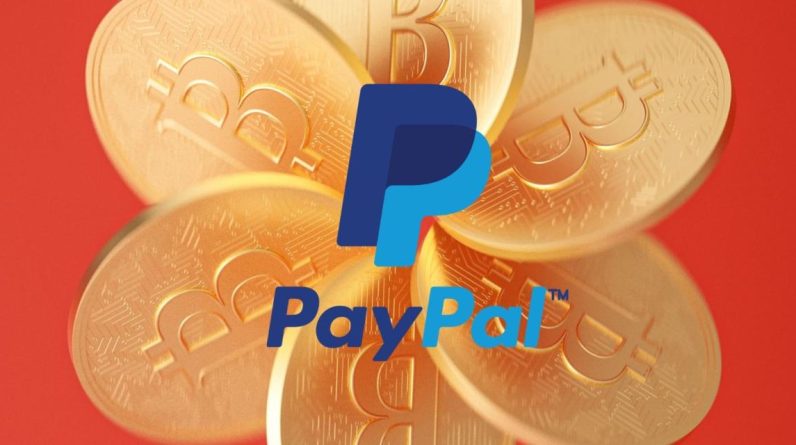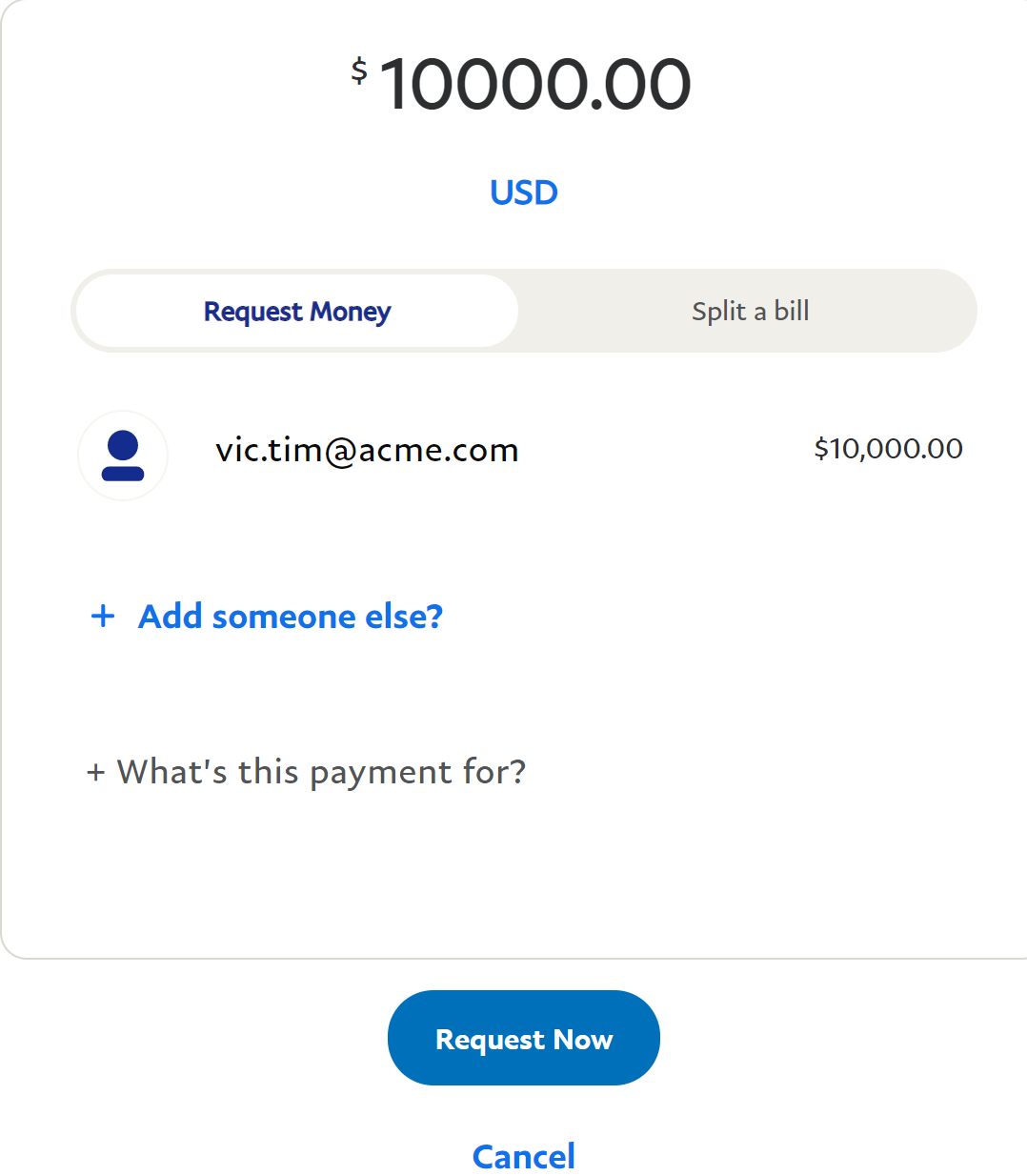
Security features to protect PayPal accounts
PayPal, as a leading online payment platform, places security as a top priority. To protect user accounts from fraudulent activity and unauthorized access, PayPal has implemented a comprehensive set of security features.
First of all, PayPal uses high-level SSL encryption to secure all transactions and personal data. This encryption ensures that sensitive information, such as credit card numbers and bank account details, is hidden from prying eyes and hackers.
Furthermore, PayPal offers two-factor authentication (2FA) as an additional layer of security. With 2FA, users are required to enter a unique code sent to their registered phone or email in addition to their password when logging in. This makes it difficult for fraudsters to access the account, even if they know the password.
Another PayPal security feature is the activity monitoring system. The system analyzes users’ spending patterns and alerts them if suspicious activity occurs, such as unusual transactions or login attempts from unknown locations.
In addition, PayPal provides a “Purchase Protection” feature that guarantees a refund if the item ordered does not arrive or does not match the description. This feature gives users peace of mind when making online purchases, knowing that they are protected from fraud.
To further enhance security, PayPal also offers a spending limit setting service. Users can set daily, weekly, or monthly spending limits to control how much money they can spend through PayPal. This feature helps prevent overspending and gives users more control over their finances.
Lastly, PayPal has a special team dedicated to investigating and dealing with fraudulent activity. The team uses advanced technology and works closely with law enforcement agencies to identify and prosecute fraud perpetrators.
By combining all these security features, PayPal creates a safe and secure environment for users to conduct online transactions. By using this platform, users can rest assured that their financial and personal information is protected from threats and fraudulent activities.
How hackers exploit PayPal vulnerabilities
PayPal has become a trusted platform for online transactions, but remains vulnerable to exploitation by crafty hackers. They exploit various vulnerabilities to access unsuspecting user accounts, steal funds, and commit fraud.
One common method used by hackers is phishing. They send fake emails or text messages that appear to be from PayPal, asking users to click a link and provide their login information. Once hackers gain access to an account, they can make unauthorized transactions, change passwords, or compromise users’ personal information.
Another vulnerability lies in PayPal’s password recovery process. If users forget their password, they can reset it via security questions. However, hackers can use social engineering techniques or exploit public answers on social media to answer those questions correctly and gain access to accounts.
In addition to phishing and password recovery techniques, hackers also exploit browser and operating system vulnerabilities. They use malicious software, such as keyloggers, to steal login details as users enter them. They also exploit security gaps in browsers or system software to gain unauthorized access to PayPal accounts.
To protect against these exploits, PayPal has implemented a number of security features. Two-factor verification, which requires a code sent to a user’s registered phone or email, adds an additional layer of security when logging into an account. Data encryption is also used to secure sensitive information, such as account numbers and transactions.
In addition to PayPal’s built-in features, users should also take proactive steps to protect their accounts. Using a strong and unique password for your PayPal account is very important. Users should avoid using the same password across multiple accounts, because if one account is compromised, other accounts could also be at risk.
Additionally, users should be wary of suspicious emails or messages that ask for their personal information. PayPal will never ask for sensitive information, such as credit card numbers or passwords, via email. If users receive such a request, they should report it to PayPal and have it removed.
By implementing PayPal’s security features and taking precautions themselves, users can significantly reduce the risk of their accounts being exploited by hackers. By remaining vigilant and following security best practices, users can ensure that their money and personal information remains safe on the PayPal platform.
How to protect your PayPal account from being hacked
PayPal has been a trusted digital payments platform for decades. However, like other online platforms, it is not completely immune from hackers. To keep your PayPal account secure, implementing proper security features is essential.
One of the most important steps is to enable two-factor authentication (2FA). This feature adds an extra layer of security by requiring you to enter a verification code sent to your registered phone or email when you log in. This makes it much more difficult for hackers to access your account, even if they obtain your password.
Another important step is to use a strong and unique password. Avoid passwords that are common or easy to guess, and use at least 12 characters consisting of a mix of uppercase, lowercase letters, numbers, and symbols. Never reuse the same password for multiple accounts.
Regularly reviewing your account activity is also important. If you see a suspicious or unauthorized transaction, report it to PayPal immediately. The quicker you respond to suspicious activity, the less likely hackers are to cause serious damage.
Additionally, be careful of phishing and social engineering attacks. Hackers often send official-looking emails or messages, asking you to click a link or provide personal information. Never click on links in emails you don’t recognize, and never give out your personal information via email or text message.
PayPal also offers a Key Security feature that lets you authorize trusted devices. Once you authorize a device, you no longer need to enter a verification code when signing in from that device. However, if your trusted device is lost or stolen, you can easily revoke its authorization from your PayPal account.
Lastly, make sure to keep your PayPal software and apps up to date. These updates often include the latest and important security fixes to protect your account from newly discovered vulnerabilities.
Implementing these security features will help significantly increase the security of your PayPal account. By taking these precautions, you can protect your financial information and your peace of mind.
Can you hack PayPal accounts?
PayPal Account Hacking: Is It Possible and How to Avoid It?

In today’s digital era, online security is a major concern for many people. One of the most popular online financial services is PayPal, which is used by millions of people around the world. However, like other online services, PayPal is also vulnerable to hacking. The most frequently asked question is: “Is it possible to hack a PayPal account?” In this article, we will discuss the possibility of hacking a PayPal account, the methods used by hackers, and tips to avoid hacking.
Is It Possible to Hack a PayPal Account?
Although PayPal has a strict security system, no system is completely safe from hacking. Hackers can use various methods to try to hack a PayPal account, such as:
- Phishing : Hackers can send fake emails or messages, which look like they are from PayPal, to trick victims and get them to provide login information or credit card details.
- Password cracking : Hackers can use special software to try to guess PayPal account passwords.
- Keylogging : Hackers can install malware on victims’ computers to record their keystrokes, so they can obtain login information.
- SQL Injection : Hackers can try to inject SQL code into the PayPal database to gain access to the victim’s information.
Methods Used by Hackers

Hackers can use various methods to try to hack a PayPal account. Here are some examples:
- Using malware : Hackers can install malware on a victim’s computer to steal login information or record keystrokes.
- Using phishing : Hackers can send fake emails or messages to trick victims and get them to provide login information.
- Using password cracking : Hackers can use special software to try to guess PayPal account passwords.
- Using SQL Injection : Hackers can try to inject SQL code into the PayPal database to gain access to the victim’s information.

Tips to Avoid Hacking
While no system is completely safe from hacking, there are some tips that can help avoid having your PayPal account hacked:
- Use a strong password : Make sure your PayPal account password is strong and unique, and not used on another account.
- Use two-factor authentication : Enable two-factor authentication on your PayPal account to add an extra layer of security.
- Avoid clicking on suspicious links : Don’t click on links that are suspicious or have nothing to do with PayPal.
- Use antivirus : Install antivirus on your computer to protect against malware.
- Update software : Make sure your software is always the latest version to fix security vulnerabilities.
- Use a VPN : Use a VPN (Virtual Private Network) when using public Wi-Fi to protect your data.
- Monitor your account : Monitor your PayPal account regularly for suspicious activity.

What to Do If Your PayPal Account is Hacked
If your PayPal account has been hacked, take the following steps immediately:
- Change password : Change your PayPal account password immediately.
- PayPal Contact : Contact PayPal to report hacks and ask for help.
- Monitor your account : Monitor your PayPal account regularly for suspicious activity.
- Update credit card information : Update your credit card information if your credit card is used by a hacker.
Conclusion
While PayPal account hacking is still possible, there are steps you can take to avoid hacking. By using strong passwords, two-factor authentication, and antivirus, and monitoring your account regularly, you can help protect your PayPal account from hacking. If your PayPal account has been hacked, immediately take appropriate steps to resolve the issue. With awareness and the right precautions, you can help protect your PayPal account from hacking.
